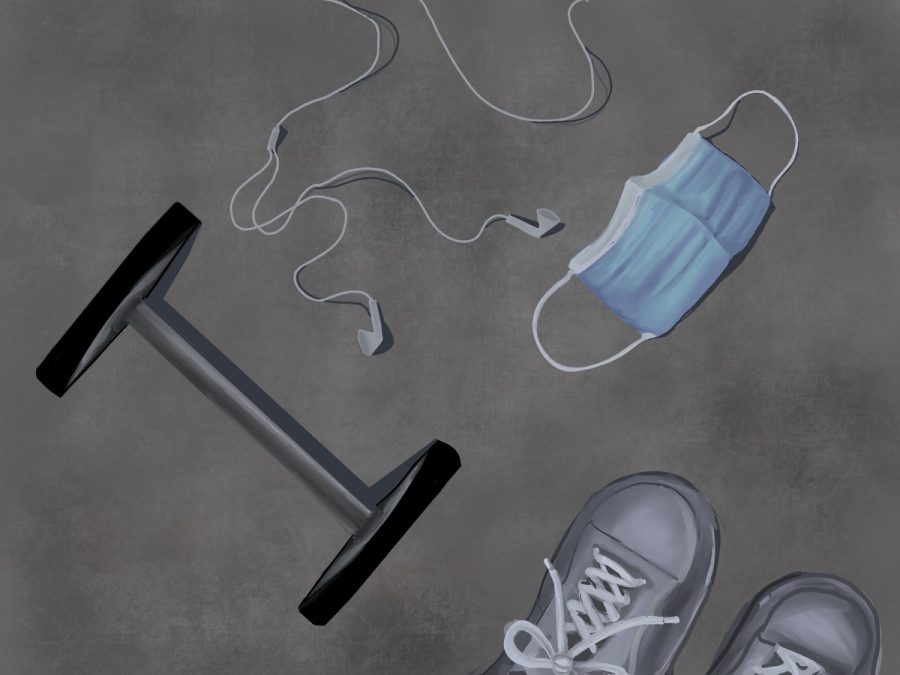RecSports should survey participants for COVID-19 safety concerns
April 12, 2022
Walking down Speedway on a chilly Sunday morning, I admired how serene the empty campus felt. It was the perfect time to squeeze in an early workout at Gregory Gym (Greg). I unexpectedly came to realize, though, that the campus was deserted because everyone had the same idea. The Greg weight room was packed. Personal space was nonexistent, to the extent that I eventually left due to safety concerns.
To accommodate concerns about COVID-19, Recreational Sports (RecSports) should conduct monthly surveys where students can anonymously share their comfort level with facility operations. In doing so, RecSports can make health precaution adjustments in the weight room to help students and members feel safer during their workouts.
While crowds of this nature are a weight room norm for some people, others are still concerned about social distancing and need to ease their way back into this type of environment, especially considering that many people work out without a mask. RecSports cannot limit the capacity of facilities without direction from the University, but they need to increase their awareness of students’ concerns regarding COVID-19 safety.
Samantha Wiedemann, an early childhood development freshman, said that communication between the RecSports office and students/members is often “pushed to the side,” and described the Greg weight room as an uncomfortable space for some participants.
“When I go to Gregory Gym to work out, (there are often) a lot of people trying to use all of the weights and it’s kind of uncomfortable, especially being a girl in the weight room,” Wiedemann said. “You’re always walking by someone or trying to find a corner to go hide in or something like that, which is kind of what I’ve tended to do.”
Wiedemann avoids Greg’s chaotic weight room by going to the other gyms on campus — the Recreational Sports Center and Bellmont Hall — but many students are completely unaware of these alternative options. Furthermore, students should not have to trek across campus simply to feel safe and comfortable in the gym.
RecSports must strive to make each of its facilities a welcoming environment for students, one that hears and listens to concerns about COVID-19 precautions. In order to do so, RecSports should email a monthly newsletter to students and members with a link to an anonymous survey for rating facility satisfaction. Additionally, they should include QR codes around the facilities for students to easily scan and provide feedback while at the gym.
Cecilia Lopez Cardenas, senior assistant director for communications in the Division of Recreational Sports, acknowledged the importance of seeking out feedback from participants.
“We really pride ourselves in obviously staying in touch with students and where they’re at in terms of their participation levels or engagement,” Lopez Cardenas said. “Our workforce is primarily students, and so we also lean on that for insight, comfort levels and feedback. That goes beyond being in the middle of a pandemic.”
Utilizing student employees for feedback is effective to some extent, but RecSports should increase their engagement with all students and members to ensure their opinions are accounted for.
Lopez Cardenas said in an interview that RecSports cannot make any changes regarding capacity and mandates without changes at the University level. Student feedback, however, can lead to smaller, more realistic changes that improve COVID-19 safety within weight rooms. This could be increasing spacing between pieces of equipment to allow for social distancing or providing extra wipes for cleanliness.
RecSports must maintain an environment where student concerns regarding safety are valued. By engaging with students through surveys, weight rooms on campus have the potential to become a more accessible and comfortable place.
Brager is a journalism freshman from Buda, TX.



